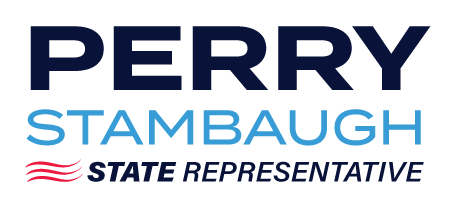Our Economic Future
As Pennsylvania’s economy begins to return to “normal,” we find ourselves facing a budget nightmare that will likely continue for several years.
The knee-jerk reaction from many lawmakers in Harrisburg will be to raise taxes to plug the state’s budget holes.
Deficits on the horizon
Even with an influx of billions in federal COVID-related relief money, the Commonwealth will soon find itself facing a budget nightmare, one that will likely continue well into the late 2020s. While projections for the 2022-23 state budget currently show a surplus, deficits are forecast after that:
a $1.9 billion shortfall in 2023-24;
$2 billion in 2024-25;
$1.8 billion in 2025-26; and,
$1.7 billion in 2026-27.
“The knee-jerk reaction to this situation from many lawmakers in Harrisburg will be to raise taxes to plug the holes.”
Pennsylvania’s leadership needs to begin shoring up our fiscal posture, boost our state credit rating, and position the Commonwealth for an even stronger future.
Improving Pennsylvania’s economy
Some ideas to make Pennsylvania a more attractive place to conduct business include, but are certainly not limited to:
Creating a state Blue Ribbon Task Force to recommend, within 60 days, the elimination of unnecessary or outdated regulations, and streamline the regulatory maze that entangles our economic growth. Much of the preliminary work has already been accomplished by the State House Republican Caucus.
A few years ago the Mercatus Center examined the 2017 Pennsylvania Code explaining it contains 40 titles of regulatory text, each relevant to a unique area of regulation. Researchers found the Code “contains 153,661 restrictions and roughly 12.8 million words. It would take an individual about 713 hours—or just under 18 weeks—to read the entire Pennsylvania Code. That’s assuming the reader spends 40 hours per week reading and reads at a rate of 300 words per minute.” That said, there’s been extensive research on state regulatory burdens, and many unnecessary rules exposed when regulatory waivers were granted during COVID shutdowns, so having the Task Force complete a list within two months is more than reasonable.
Opening state lands to new oil and gas drilling, rejecting any natural gas severance tax, and halting efforts to have the state implement a back-door carbon tax by joining the Regional Greenhouse Gas Initiative (RGGI).
We can’t achieve prosperity without ensuring a low-cost and local energy supply. Pennsylvania’s natural gas and gas liquid reserves were critical to our economic recovery following the Great Recession, and they’ll again be a strong factor in helping us jumpstart economic development following the COVID pandemic.
By becoming part of the multi-state RGGI compact, Pennsylvania will set a price (essentially, impose a tax) and declining limits on carbon dioxide emissions from power plants. After a long career in the electric utility business, I’ve seen firsthand the major strides Pennsylvania has made, and continues to make, in reducing carbon dioxide and other greenhouse gas emissions from our electricity sector.
We all should be proud of the shifts and investments over the past 30 years away from burning coal to cleaner generation to power our homes and businesses. Because of this experience, I am convinced participation in RGGI will do little good. In fact, it will put our Commonwealth at a competitive disadvantage against energy-rich neighboring states like West Virginia and Ohio (which will export their cheaper electricity to Maryland, Delaware, and New Jersey instead of us), produce little or no net environmental benefit (older coal plants are shutting down already due to market pressures as well as federal wastewater and mercury regulatory curbs), and cost thousands of good jobs across our COVID-ravaged manufacturing and energy industries.
Making sure state incentives and streamlined regulations are in place to welcome businesses—such as pharmaceuticals, furniture manufacturing, and technology companies—relocating from China back to the United States. The reshuffling of the world’s supply chain could greatly boost our economy if we’re properly prepared for it.
Providing resources to counties and private businesses to build a reliable broadband/high-speed Internet network as a way to vastly promote business expansion, provide a competitive edge for our farmers and agribusinesses in rural areas, as well as improve telemedicine and education in every corner of the Commonwealth.
Related to telecommunications infrastructure, we need to renew our focus on our state’s transportation network—our roads and bridges. It has been nearly a decade since Pennsylvania’s Act 89 transportation legislation was enacted to invested more than $2 billion into roads, bridges, and public transportation. Unfortunately, there’s been no such comprehensive transportation funding legislation passed in the intervening years, and our roadways are showing the effects. We also need to study if PennDOT’s budget management, construction, and contacting bidding/awarding procedures have kept pace with best management practices elsewhere.
Along with this, the time has come for Pennsylvania to abolish the archaic and unfair system of using property taxes to fund schools and begin the process of divesting state investments from Chinese holdings to promote democratic reforms in that Communist nation.
“We need to take immediate steps to grow Pennsylvania’s economic base—that means keeping taxes low and attracting new businesses and jobs.”
- PERRY STAMBAUGH


